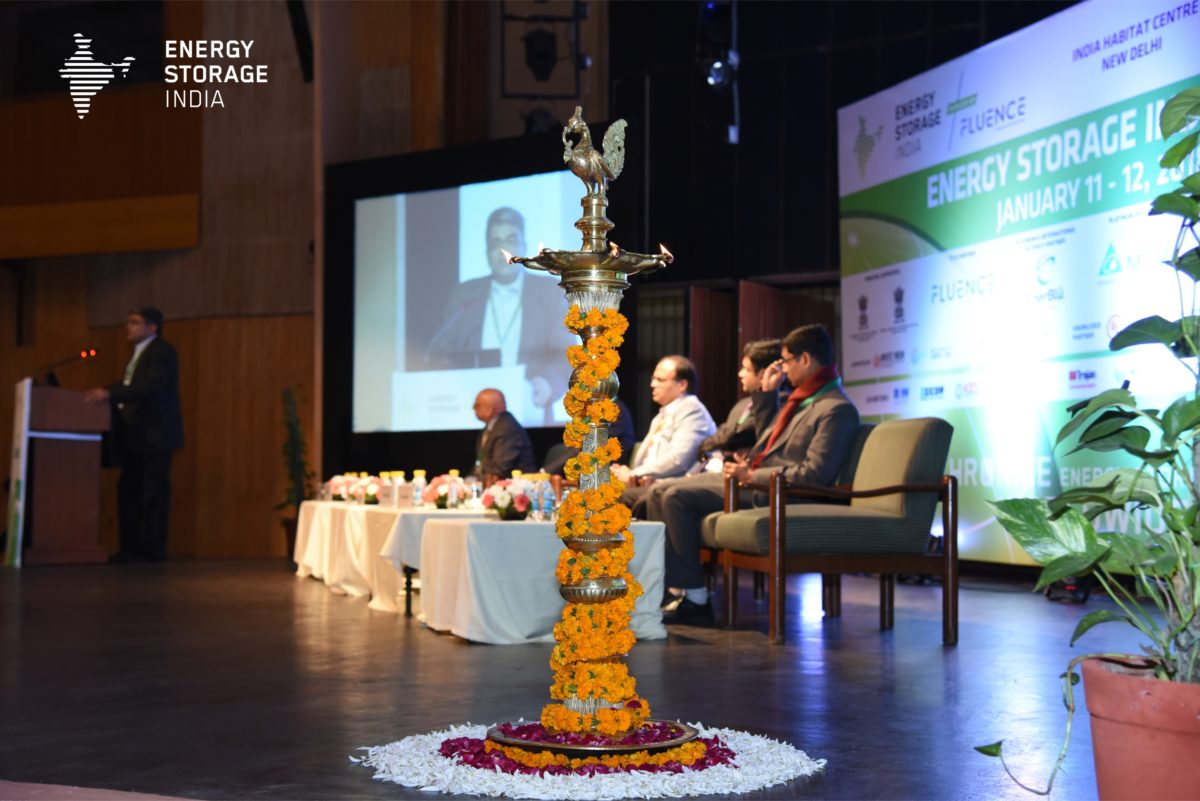On Day 1, a host of eminent industry experts touched upon topics including renewable energy integration with energy storage systems, developing next generation storage technologies, electric vehicle (EV) charging infrastructure and manufacturing in India.
Overall, the India Energy Storage Alliance (IESA) estimates that the Indian market for storage will grow to more than 300 GWh over the next seven years. The country is expected to attract investment for as many as four giga factories to manufacture advanced lithium-ion (Li-ion) batteries, amounting to backing of more than $3 billion in the next three years, according to the alliance.
As with solar PV products, however, the current market for the manufacture of Lithium-ion (Li-ion) batteries is still lacking, with most of the work still focused on R&D – and that too, at the government sector level. In the private sector, meanwhile, companies are primarily building battery packs with Li-ion cells imported from China.
A draft version of India’s National Energy Storage Mission (NESM) is awaiting final approval and is expected to be announced this month. With its launch, the nation’s energy storage sector is set to see increased activity in terms of manufacturing, assembly, project development, equipment supply and R&D, according to Rahul Walawalkar, IESA executive director, who spoke to pv magazine ahead of the Energy Storage India event.
Today meanwhile, Rakesh Malhotra, founder, SAR Group, highlighted that among venture capital (VC) firms, there is huge interest in the energy storage space, but it is hard for them to justify investing in startups.
Most of the grassroots level innovation is happening at the incubator stage, he said, while beyond early-stage research and innovation, there is a long valley of death before the technologies are developed into products that show suitability in terms of reliability and commercialization.
Vimal Mahendru, president, Legrand, added, “Beyond innovation, there are three things to be taken care of: Getting the standards developed, testing to conform to the standard and a policy to ensure that the product being developed by the industry finds a conducive environment.”
However, there are some positive developments too. For instance, Euclion Energy plans to start manufacturing Li-ion battery cells in India by 2020-23. “If we achieve this by 2020, probably we will become one of the first Li cell manufacturers in India,” said Euclion’s chief operating officer.
Currently, the company manufactures Li-ion battery packs, including battery management systems and thermal management systems. It also provides DC fast chargers for EV charging stations.
Energy Storage India 2019 is taking place in New Dehli on January 10 and 11. Key speakers include: Suresh Prabhu, minister, Ministry of Commerce and Industry; Satish Agnihotri, former secretary, Ministry of New and Renewable Energy (MNRE); Praveer Sinha, CEO and MD, Tata Power; Rahul Walawalkar, India Energy Storage Alliance and chair, Global Energy Storage Alliance; Jatindra Nath Swain, MD, Solar Energy Corporation of India (SECI); Pankaj Batra, former chair, Central Electricity Authority; and Ramanan Ramanathan, mission director-Atal Innovation Mission, Government of India.
This content is protected by copyright and may not be reused. If you want to cooperate with us and would like to reuse some of our content, please contact: editors@pv-magazine.com.









Manufacture of Lithium-ion (Li-ion) batteries in India “Make in India” will play a major role for many Lithium-ion (Li-ion) batteries dependent industries, Which in turn will attract more cost-effective investement in Energy storage & E-Vehicles. More investment will be seen in Energy storage & finally, the end user will be benefited by purchasing E-Vehicle.
Thanks for reading, Bharath. You will be glad to know that Indian PSU BHEL is also in talks with global lithium ion battery manufacturers to set up a manufacturing unit in India.
Best,
Uma Gupta